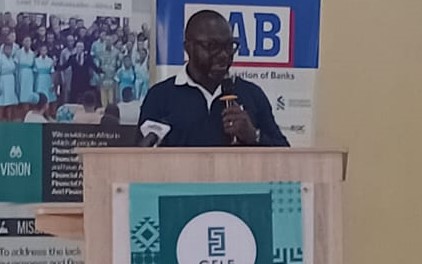Mr. John Awuah, President of the Ghana Association of Bankers, has urged policymakers to use clear and simple language when communicating national economic policies to ensure public understanding.
He noted that complex economic terminology often alienates citizens, limiting informed financial decisions.
Speaking at a financial literacy conference in Accra, Mr Awuah stressed the need for holistic financial education to drive Ghana’s economic transformation.
The conference highlighted the crucial role of rounded financial education in driving Ghana’s economic transformation, bringing together industry leaders and key stakeholders.
It was on the theme, “Building Wealth, Changing Lives, Strengthening Communities through Personal and Financial Education.”
Mr. Awuah emphasized that wealth creation depended not only on personal savings and investments but also on broader economic conditions such as inflation, exchange rates, and fiscal policies.
“The recent domestic debt exchange programme was a stark reminder that even prudent personal financial management can be undermined by macroeconomic instability,” he said.
Many Ghanaians, he noted, struggled to understand how such policies affect their lives due to technical jargon.
“When people understand how inflation erodes their savings or how exchange rate fluctuations impact prices, they can make better financial choices,” he added.
Mr. Awuah also advocated for public education, urging government officials and economic managers to simplify complex concepts into relatable terms.
He underscored the significance of Artificial Intelligence (AI) in advancing financial literacy, noting its potential to provide tailored advice and close knowledge gaps, particularly for underserved populations.
However, he cautioned that technology must be supported by clear and effective policy communication.
Mr. Awuah called for greater collaboration between financial institutions, educators, and policymakers to promote economic literacy.
“Financial empowerment begins with understanding. If we want a society where wealth is sustainable and inclusive, we must ensure that macroeconomic policies are accessible to everyone, not just experts,” he stated.
Source: GNA

















